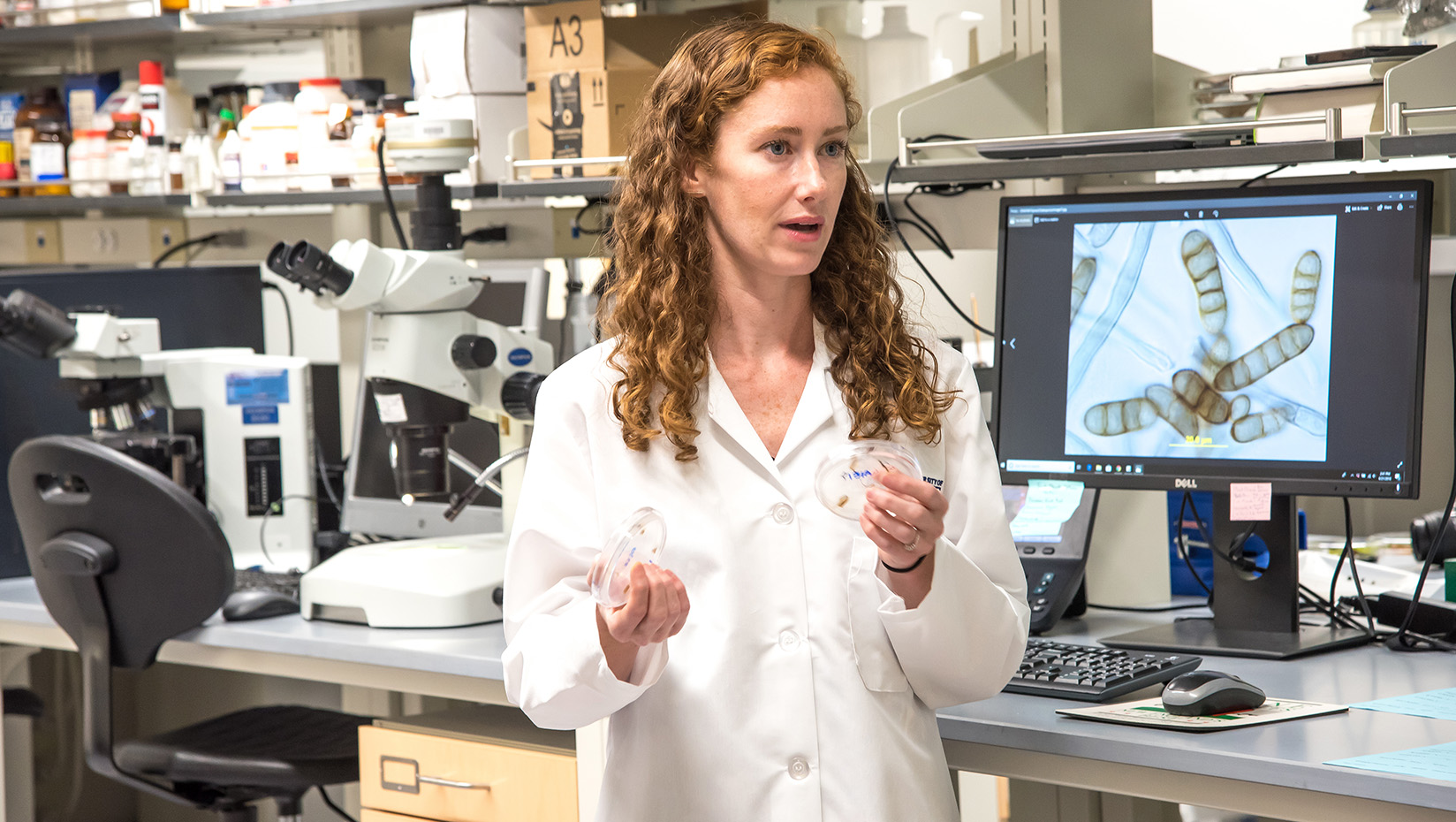
Extension’s plant disease lab receives major grant to lead regional network
University of Maine Cooperative Extension Plant Disease Diagnostic Lab recently received $472,400 to support the Northeast Plant Diagnostic Network (NEPDN). The funding is part of a $3 million grant cycle from the National Institute of Food and Agriculture (NIFA) to support the National Plant Diagnostic Network (NPDN).
With this grant, UMaine Extension becomes the regional center for the Northeast, which represents 14 labs in 12 states. NPDN supports the health and productivity of plants in agriculture and natural ecosystems with quality diagnostic services, member professional development and effective collaboration.
“As the regional center, we will detect and identify plant pests and pathogens that can negatively impact our local food systems,” says Alicyn Smart, associate Extension professor, Extension plant pathologist, and director of NEPDN. “We also play the role of communicator, working to disseminate up-to-date information to the rest of the regional network in order to limit the negative effects of plant diseases.”
Smart’s team will undergo enhanced diagnostician training and become first responders. The funding will help maintain capacity at the Plant Disease Diagnostic Lab and strengthen the diagnostic infrastructure across the Northeast network. As part of the project, the team will also develop and refine reporting protocols to ensure timely submission of critical disease information to regional and national networks.
NPDN is a national network of 70 diagnostic laboratories that rapidly and accurately detect and report pathogens that cause plant diseases of national interest that may be deemed a biosecurity risk. The network alerts labs of possible plant disease outbreaks and/or introductions, and is technologically equipped to detect and identify pests and pathogens rapidly.
Here in the Northeast, the diagnostic labs process samples from a wide variety of diversified small farms, as well as individuals and large industries. Each NEPDN lab supports a broad range of clientele, with samples submitted by homeowners, farmers, the lawn care industry, nurseries and state Departments of Agriculture. The individual expertise, skill set and available diagnostic methods at each of the 14 labs enable the region to cohesively provide efficient and effective identification of pathogens infecting plants across the Northeast.
The Plant Disease Diagnostic Lab is part of UMaine Extension’s Diagnostic and Research Lab (DRL) located in Orono. The diagnostic lab features several specialized microscopes, incubators and a spectrophotometer. DRL is also home to Extension’s Aquatic Animal Health Lab, the Veterinary Diagnostic Lab and the Tick Lab. This high-containment facility allows Extension to collaborate with other research institutions, industry partners and state and federal agencies on strategic projects that require specialized facilities, equipment and expertise.
